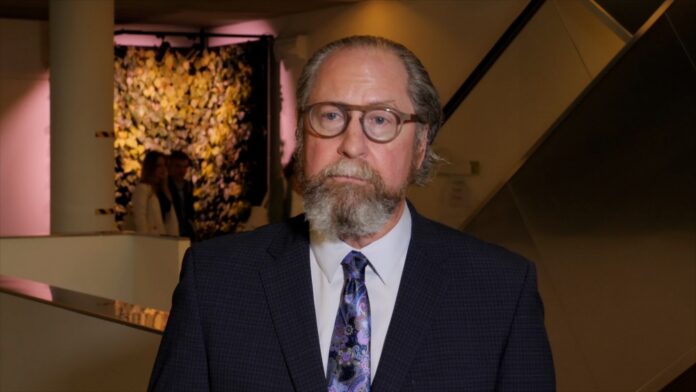The strengths of Polish transplantology are experience, highly educated medical staff and modern equipment. However, the problem remains the insufficient number of donors and low social awareness concerning transplantology, a problem that doctors face daily. As a result, they often do not know how to discuss organ donation for transplantation with patients’ families, especially when it involves children. The September conference “Transplant Summit Poland 2023”, organized by the BGK Foundation, dedicated to this issue. Its special guest was Prof. Robert Montgomery, an American transplantologist, and a world-renowned authority in this field. The invited specialists discussed, among other things, how to make organ transplants – especially among children – stop being a taboo subject in Poland.
“The most burning need and the biggest challenge concerning transplants is undoubtedly the current lack of organs for transplantation and the fact that most people waiting for a transplant never receive it because appropriate organs will not be available in time, and they will be too sick or die before that. The principle ‘someone has to die for someone else to live’ simply does not work. Therefore, I think our most important task at the moment is to find another source of organs for transplantation. This is why one of my main interests is currently the use of animal organs, harvested from pigs, as an alternative way of meeting the growing demand for organ transplants” says Prof. Robert Montgomery, director of the Langone Health Transplant Institute at New York University.
The insufficient number of organs for transplantation is the primary barrier to the development of Polish transplantology. According to data from the Poltransplant Center, in Poland, there are statistically 14.6 deceased donors per million people (from one can be harvested a maximum of eight organs), while the European average is 21.5. Statistics also show that the number of donors, as well as the number of transplant procedures in Poland, has not significantly increased or decreased in recent years. The COVID-19 pandemic has exacerbated this situation. There is, however, a growing queue of patients waiting for a transplant – now there are about 2,000 patients, most of whom are waiting for a kidney transplant. It can also be obtained from a living donor, as well as liver fragments, but the percentage of such transplants is still negligible – in Poland, the kidney transplant rate from living donors per 1 million inhabitants is 0.8 and is one of the lowest in Europe (which stems from the fact that dialysis stations and nephrologists inform patients too rarely about the possibility of family transplants). In the Czech Republic, kidneys from living donors are transplanted three times more often, in Germany, Spain, and France – seven times more often, and in the Netherlands, such operations are performed statistically as much as 27 times more often (NIK data).
“Poland and Europe have a great system, but there are some areas where Europeans could be a bit more determined when it comes to using organs for transplants, for example, in the case of retrieving them from donors whose death is confirmed based on the criterion of circulatory failure, cessation of circulation. Some of these organs could be used, which would allow more people to receive a transplant,” says Prof. Robert Montgomery. “My dream is that we will have enough organs for transplantation for everyone who needs them. But the only way to achieve this is to find an alternative to human organs. Then no one will have to die before they wait for a transplant.”
Polish transplantology understands experience and a well-educated medical staff. It is worth remembering that Prof. Zbigniew Religa carried out the first successful heart transplant in Zabrze in 1985. However, doctors and medical staff daily face low social awareness concerning transplantology. As a result, they do not know how to discuss organ donation for transplantation with the families of patients. Especially when it comes to children.
“The equipment and medical staff in Poland are genuinely at the European level. The readiness of doctors to talk about whether they can donate organs for transplantation is worse. The problem is also the awareness of ordinary people, who do not discuss transplants at home, what will happen to their bodies after death,” says Renata Kościelniak, president of the BGK Foundation. “Culturally, socially, we must work through this topic.”
“Talking about transplantation is quite difficult, a person is attached to his own body and treats it as something absolutely integral,” adds linguist, Prof. Jerzy Bralczyk.
As he points out, sometimes the word “organ” alone evokes negative associations in patients and their families.
“I think the word ‘organ’ – although it is a perfectly normal word, used also in colloquial language – is not the most appropriate here because it immediately arouses a very negative association and it would be better if we used other words,” says Prof. Jerzy Bralczyk.
According to research conducted by CBOS several years ago, the idea of organ transplantation for the purpose of saving lives or restoring health enjoys almost universal approval in Poland (93%). Eight out of 10 adults in Poland agree that after their death, organs should be taken from their bodies for transplantation, and only 11% are opposed. Despite this, 3/4 of Poles have never discussed with their loved ones the subject of donating their organs after death.
“We know that in the area of organ donation, there is a huge problem because far more people are waiting for a transplant than there are donors. And here we face various barriers and challenges, but one of the most important is knowledge and our beliefs about this. Namely, in Poland there is a law that talks about a presumed consent, which means legally and medically our organs can be taken from us if something happens to us. But equally, no medical team will carry out the extraction of organs without talking to the family and without ruling out any opposition from their side. The family, in a situation where they have just lost a loved one, has major objections to issuing such consent if there is uncertainty about the will of the deceased. But how can they know the deceased’s will? This is only possible if there were any discussions on this subject within the family,” says Dr. Joanna Heidtman, psychologist and sociologist, SWPS University lecturer.
“Transplantation in Poland still has a huge scope for activity because there are many social campaigns concerning cancer patients, we promote blood donation, bone marrow donation and many of these issues are addressed. However, there is no campaign addressing transplantology and deciding what to do with organs after death. That’s why we want to encourage Poles to talk about this. Not everyone has to agree because it’s an individual decision, but let’s talk about it,” adds Renata Kościelniak.
The BGK Foundation has been running a nationwide campaign “Your YES has power!” for over two years, whose aim is to make society aware, among other things, of the fact that thanks to the possibility of harvesting and transplanting organs, one life can save as many as eight others. The aim is to change the perception of organ transplant issues, especially among children, who in Poland wait for transplantation even longer than adults, and every year several of them die due to the lack of a donor. At the end of September at the Silesian Museum in Katowice, the nationwide conference “Transplant Summit Poland 2023”, organized by the BGK Foundation, dedicated to socio-medical aspects of organ transplants in children was held.
“Child donation is especially difficult because parents then face the worst moment in their lives,” says the president of the BGK Foundation. “The BGK Foundation became interested in this topic when Prof. Zembala from the Silesian Heart Diseases Center approached us asking for help in financing a new hospital wing. During our conversations, we learned that when it comes to pediatric transplantation, we have a problem in Poland. That is, we have highly-trained medics, we have great equipment, but there are no social campaigns and society knows very little about this subject, so there are not enough donors. That’s why we decided to take action.”
The special guest of the “Transplant Summit Poland 2023” was Prof. Robert Montgomery, an American transplantologist, and a world-renowned authority in this field. He is also the originator and author of the world’s first kidney and heart transplant from a genetically modified pig. Within just five years, he created the largest transplant program in New York. The speakers also included authorities from other medical sciences, psychologists, and communication specialists, who discussed, among other things, how to make organ transplants – especially among children – stop being a taboo subject in Poland.
“There is no single recipe for what to do to ensure that the conversation with the parents of a potential donor is successful. Every case is different. However, there are some general rules, namely, parents should be cared for from the moment they enter the hospital and always receive the same clear, honest message from the doctors who talk to them,” emphasizes Elżbieta Byrska-Maciejasz, anesthesiologist at the University Children’s Hospital in Krakow.
“How the family is treated during the hospital stay from the very beginning has a tremendous impact on the family’s decision and the family’s peace of mind. Here usually a psychologist or transplant coordinator is needed, who will talk to them, will be with them during the organ collection and the entire procedure,” adds Dr. Joanna Heidtman.
The “Transplant Summit Poland 2023” conference was divided into two tracks: medical and social. During the first one, innovative directions in pediatric surgery and clinical transplantation were discussed, among others, as well as the issue of international cooperation in organ donation. In the scope of the social track such issues as education and language, i.e., how to talk about organ transplants were discussed. Also, workshops for medical students, nurses, and educators took place.
The conference ended with a concert at the Zinc Rolling Museum in Katowice, expressing gratitude and respect to all those engaged in the transplant process, especially organ donors and their families.

















